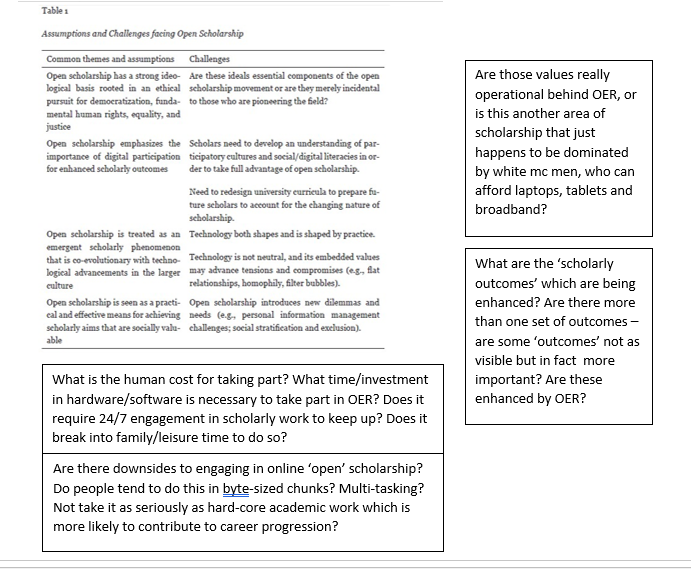In activity 1.3, we are asked to read and comment on a paper about Open Scholarship, also variously referred to as Open Educational Resources (OER). In particular, the authors suggest four assumptions about open scholarship. (My notes are in the text boxes.)

While I would agree with Veletsianos and Kimmons that there is an assumption that open scholarship can seamlessly support a more democratic education, I might go further than them in my critique of the extent this is possible. It might be illuminating to look at publications about open scholarship in terms of how many women, people from ethnic minority communities and people from less developed countries, in particular, actually are involved in this field of scholarship.
Too often, there are sets of outcomes which are publicly circulated while an invisible set of outcomes are far more influential in academia. For example, when interviewing for lectureships, candidates may be asked about teaching and management skills and qualifications, but it is the list of research publications which is the real means to an appointment.
Generally in digital scholarship and teaching, it seems to me that there is a lack of acknowledgement of human social input. Time spent engaging with students or with colleagues on forums is often not realistically quantified; if it were, the actual cost of engaging in digital scholarship would have to be counted as much higher.